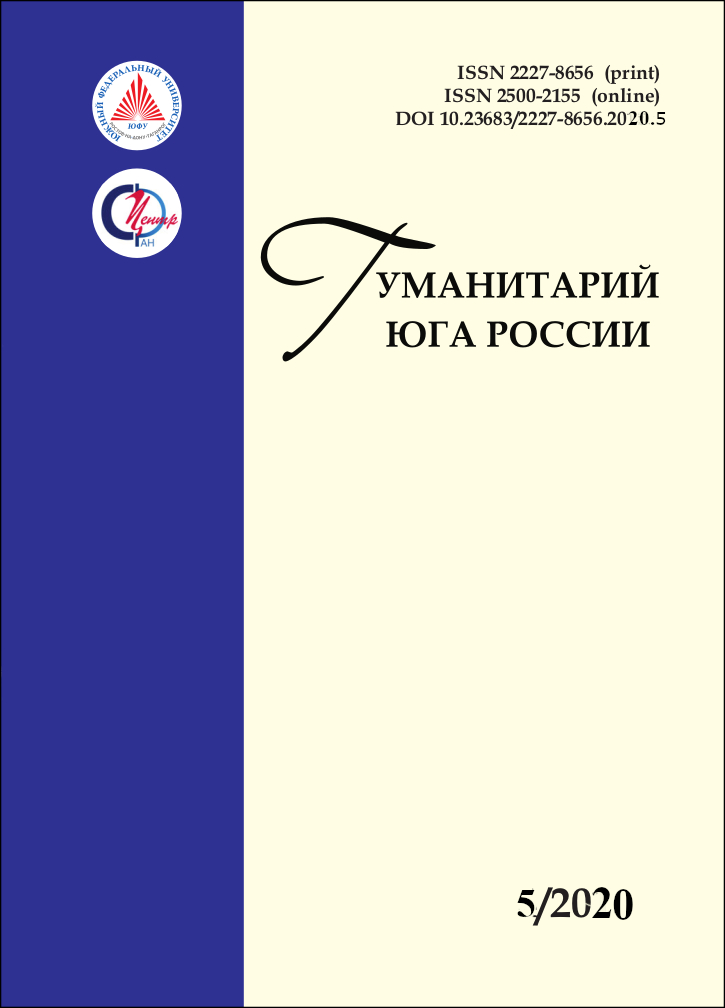Роль родственных и земляческих связей в развитии предпринимательства иностранных мигрантов в России
Научная статья
Аннотация
Литература
Верховская О.Р., Богатырева К.А., Дорохина М.В., Кнатько Д.М., Шмелева Э.В. Глобальный мониторинг предпринимательства. Россия 2019/2020: национальный отчет. СПб.: Высшая школа менеджмента, 2020.
Верховская О.Р., Дорохина М.В. Глобальный мониторинг предпринимательства: Россия 2012: национальный отчет. СПб.: Высшая школа менеджмента, 2012.
Градосельская Г.В. Сетевые измерения в социологии : учеб. пособие. М.: Новый учебник, 2004. 248 с.
Давыдов С.А., Юдина А.А. Социальные сети и сетевой подход к анализу социальной структуры // Теория и практика сервиса: экономика, социальная сфера, технологии. 2014. № 4 (22). C. 37–41.
Дмитриев А.В., Пядухов Г.А. Этнические группы мигрантов и конфликты на анклавных рынках труда // Социологические исследования. 2005. № 8. С. 90–100.
Ежемесячный мониторинг социально-экономического положения и самочувствия населения: 2015 г. – август 2019 г. / под ред. Т. Малевой. М., 2019.
Кузнецов И.М., Мукомель В.И. Формирование этнических ниш в российской экономике: история вопроса // Неприкосновенный запас: дебаты о политике и культуре. 2007. № 1. С. 175–184.
Массей Д. Синтетическая теория международной миграции // Мир в зеркале международной миграции / гл. ред. В.А. Ионцев. М.: МАКС-Пресс, 2002. Вып. 10. C. 162–174.
Радаев В.В. Этническое предпринимательство: мировой опыт и Россия // Политические исследования. 1995. № 5. С. 79–87.
Рыжова Н.П. Феномен этнического предпринимательства: западная традиция и российское прочтение // Новые российские гуманитарные исследования. 2008. Режим доступа: http://www.nrgumis.ru/articles/123/.
Рязанцев С.В. Этническое предпринимательство как форма адаптации мигрантов // Общественные науки и современность. 2000. № 5. С. 73–86.
Снисаренко А. Этническое предпринимательство в большом городе современной России (на материалах исследования азербайджанской общины С.-Петербурга). Режим доступа: http://www.narcom.ru/publ/info/522.
Уолдингер Р., Олдрич Х., Уорд Р. Этнические предприниматели // Экономическая социология. 2008. № 9 (5). С. 30–55.
Щербакова Е. Миграция в России: итоги первого полугодия 2020 года // Демоскоп Weekly. 2020. № 871–872. 28 сент. – 11 окт.
Bonacich E.A. Theory of Middleman Minorities // American Sociological Review. 1973. № 38 (5). P. 583–594.
Galbraith C.S., Rodriguez C.L., Curt H.S. Ethnic economies, social capital and the economic theory of clubs // Handbook of research on ethnic minority entrepreneurship: a co-evolutionary view on resource management. Leo-Paul Dana (Ed.). Edward Elgar Publ., 2007. P. 16–29.
Leicht R., Berwing S. Bayerisch Start-up potential among people with foreign roots. Trends, drivers, obstacles. Study commissioned by the Federal Ministry for Economic Affairs and Energy (BMWi), 2017.
Light I., Bhachu P., Karageorgis S. Migration networks and immigrant entrepreneurship // Immigration and Entrepreneurship. New Brunswick, NJ: Transaction, 1993. P. 25–50.
Light I., Gold S. Ethnic Economies. San Diego: Academic Press, 2000.
Oliveira C.R. Understanding the Diversity of Immigrant Entrepreneurial Strategies // Handbook of research on ethnic minority entrepreneurship: a co-evolutionary view on resource management. Leo-Paul Dana (Ed.). Edward Edgar Publ., 2007. P. 61–83.
Wilson K.L., Portes A. Immigrant Enclaves: An Analysis of the Labor Market Experiences of Cubans in Miami // The American Journal of Sociology. 1980. № 86. P. 295–319.
Spencer, J.H., Flowers, P.R., Seo, J. (2012). Post-1980s Multicultural Immigrant Neighborhoods: Koreatowns, Spatial Identities and Host Regions in the Pacific Rim // Journal of Ethnic and Migrant Studies. Vol. 38, № 3. P. 437–461.
World migration report 2020. International Organization for Migration, 2019.
Поступила: 30.09.2020
Опубликована: 09.12.2020






